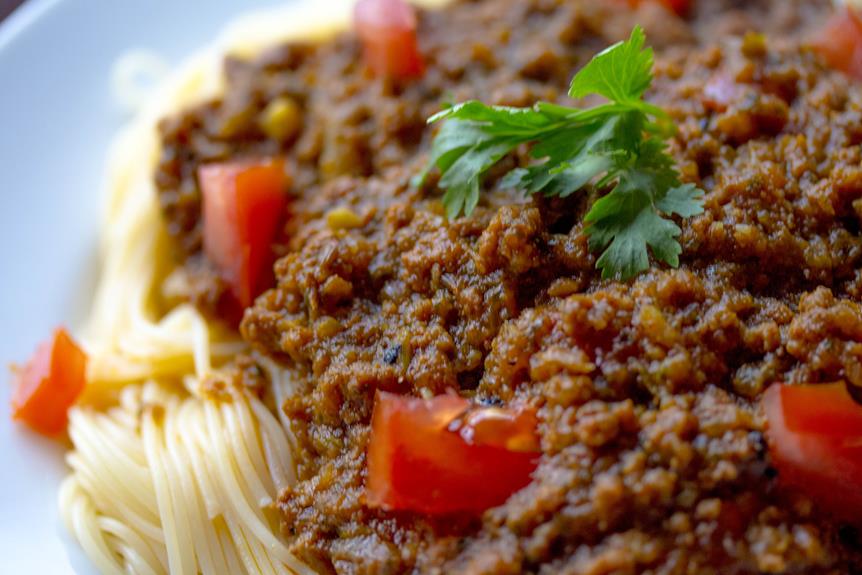Eating pasta every day can be like a slippery slope: it may seem harmless at first, but the consequences can quickly become overwhelming.
From weight gain to digestive issues, diabetes risk, and inadequate nutrition, there are many potential side effects of eating pasta every day.
This article will explore why this seemingly innocent food can be so dangerous and how to ensure that pasta consumption does not lead to negative health outcomes.
Weight Gain
Will you gain weight if you eat pasta everyday?
Eating pasta every day can cause weight gain due to increased cravings, blood sugar spikes, and lack of nutrient-dense foods. Too much pasta can lead to higher calorie intake, leading to weight gain.
Eating pasta in moderation can be beneficial, but it shouldn't be a diet staple. Nutrient-dense foods like lean proteins, fruits, and vegetables should be consumed to help keep calorie intake in check.
Allow yourself to enjoy pasta, but be mindful of the consequences.
Digestive Issues
You could experience digestive issues if you eat pasta everyday. Common side effects include:
- Carbohydrate cravings due to the pasta's high content of simple carbohydrates
- Frequent bloating due to the pasta's high fiber content
- Higher blood sugar levels due to the pasta's high glycemic index
- Changes in bowel habits due to the pasta's high starch content
- Indigestion due to the pasta's high acidity levels
Enjoy pasta in moderation for a healthier, balanced diet.
Risk of Diabetes
Eating pasta everyday can increase your risk of developing diabetes, so be sure to eat it in moderation. Too much pasta can cause your blood sugar levels to rise, and an excessive amount of carbohydrates can lead to insulin resistance.
Take note of how much pasta you eat and be aware of the potential health risks. Try to limit your intake to maintain healthy blood sugar levels and reduce your risk of diabetes.
Eating pasta in moderation can help you enjoy it while still taking care of your health.
Portion Sizes
It's important to pay attention to portion sizes when eating pasta to ensure that you're not overindulging. Eating in moderation is key to a balanced diet.
- Have a mindful approach to eating.
- Portion sizes should be small.
- Don't forget your veggies.
- Avoid sugary sauces.
- Add healthy proteins.
Indulge in pasta, but with caution and in moderation to avoid any side effects from eating it everyday.
Nutritional Needs
By monitoring your nutritional needs, you can determine the right portion size for you and eat pasta in moderation to avoid any side effects.
Alternatives to pasta, such as alternative carbohydrates, are beneficial for overall health.
Seeking out these health benefits will help you make informed food choices to maintain a balanced diet and healthy lifestyle.
Eating pasta every day can lead to nutritional imbalances, so it's important to be mindful of your portion sizes and include a variety of foods.
Frequently Asked Questions
Is It Safe to Eat Pasta Everyday?
It's generally safe to eat pasta everyday, as long as your dietary habits and portion control are balanced. However, it's important to listen to your body and make sure your diet is varied. Consider eating a variety of nutritious foods to ensure optimal health.
What Type of Pasta Is the Healthiest?
If you're looking for a healthier pasta option, consider whole-grain pasta. It's high in fiber and other essential nutrients, plus it's great for portion control. Be mindful of the pasta nutrition facts and you'll enjoy the benefits of eating pasta without risking any potential side effects.
How Can I Make Pasta Healthier?
You can make pasta healthier by adding veggies, using whole wheat, and experimenting with different flavors. Discover delicious, nutritious recipes that liberate your taste buds!
How Much Pasta Should I Be Eating per Day?
Exercise regularly and practice portion control when eating pasta. Aim for 1/2-3/4 cup cooked pasta per day. Eating more can lead to health issues, so be mindful.
What Are Some Alternative Pasta Options?
Try quinoa and rice pasta as delicious alternatives to traditional wheat pasta. These grain-based options provide a nutrient-dense, gluten-free alternative for those seeking liberation from wheat-based diets.
Conclusion
Eating pasta everyday can lead to some serious side effects like weight gain, digestive issues, and an increased risk of diabetes. Portion sizes and nutritional needs should be taken into account when deciding how much pasta to eat.
Ultimately, eating pasta everyday is a slippery slope that can quickly spiral out of control – so be careful!






